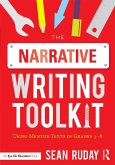There is nothing more disenchanting to man than to be shown the springs and mechanism of any art. All our arts and occupations lie wholly on the surface; it is on the surface that we perceive their beauty, fitness, and significance; and to pry below is to be appalled by their emptiness and shocked by the coarseness of the strings and pulleys. In a similar way, psychology itself, when pushed to any nicety, discovers an abhorrent baldness, but rather from the fault of our analysis than from any poverty native to the mind. And perhaps in æsthetics the reason is the same: those disclosures which seem fatal to the dignity of art seem so perhaps only in the proportion of our ignorance; and those conscious and unconscious artifices which it seems unworthy of the serious artist to employ were yet, if we had the power to trace them to their springs, indications of a delicacy of the sense finer than we conceive, and hints of ancient harmonies in nature. This ignorance at least is largely irremediable. We shall never learn the affinities of beauty, for they lie too deep in nature and too far back in the mysterious history of man. The amateur, in consequence, will always grudgingly receive details of method, which can be stated but never can wholly be explained; nay, on the principle laid down in Hudibras, that ‘Still the less they understand, the more they admire the sleight-of-hand,’ many are conscious at each new disclosure of a diminution in the ardour of their pleasure. I must therefore warn that well-known character, the general reader, that I am here embarked upon a most distasteful business: taking down the picture from the wall and looking on the back; and, like the inquiring child, pulling the musical cart to pieces.
Bitte wählen Sie Ihr Anliegen aus.
Rechnungen
Retourenschein anfordern
Bestellstatus
Storno









